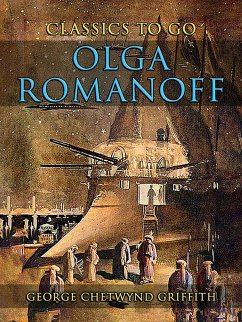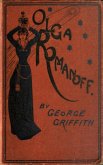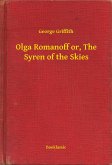Olga Romanoff, penned by George Chetwynd Griffith, is a captivating tale set in a dystopian future that explores themes of power, rebellion, and the clash between old and new world orders. The story unfolds in the 21st century, a time when the world is dominated by a technologically advanced federation led by the Aerians, descendants of the protagonists from Griffith's earlier work, The Angel of the Revolution. Olga Romanoff, a descendant of the Russian Tsars, emerges as a central figure driven by a quest for revenge and a desire to restore her family's former glory. Olga's character is complex and multifaceted, embodying the themes of rebellion and resistance against an established order. This resonates deeply with contemporary society, where movements and individuals challenge existing power structures and seek to reshape the socio-political landscape. Olga's struggle reflects the universal human desire for autonomy and self-determination, mirroring modern movements that advocate for social justice, equity, and the dismantling of oppressive systems. The novel's exploration of technological advancements and their impact on society is particularly relevant today. The Aerians' superiority is built on their advanced technology, which they use to maintain peace and order. However, this technological dominance also breeds resentment and rebellion, echoing current debates about the role of technology in governance, surveillance, and the balance of power. As our world grapples with the ethical implications of AI, data privacy, and the digital divide, Griffith's narrative serves as a cautionary tale about the potential consequences of technological overreach and the importance of maintaining ethical standards. Another significant theme in Olga Romanoff is the clash between tradition and progress. Olga's desire to restore the old Russian Empire contrasts sharply with the Aerians' vision of a unified, technologically advanced world. This tension mirrors contemporary conflicts between conservative and progressive forces in society, where debates around tradition, cultural identity, and the pace of change are ever-present. The novel encourages readers to reflect on the importance of balancing respect for heritage with the need for innovation and progress in a rapidly changing world. The plot's twists and turns, including daring escapes, intense battles, and complex political maneuvers, keep readers engaged while also prompting them to think critically about the broader implications of the characters' actions. Olga's eventual downfall serves as a poignant reminder of the dangers of unchecked ambition and the cyclical nature of power struggles. In conclusion, Olga Romanoff by George Chetwynd Griffith is not just a thrilling adventure but also a thought-provoking exploration of themes that are highly relevant to modern readers. Its examination of power dynamics, technological influence, and the tension between tradition and progress offers valuable insights into contemporary societal issues. By drawing parallels between the novel's events and today's world, readers can gain a deeper understanding of the complexities of power, resistance, and the ever-evolving nature of human society. This timeless tale continues to captivate and inspire, making it a must-read for those interested in both imaginative fiction and social commentary.
Dieser Download kann aus rechtlichen Gründen nur mit Rechnungsadresse in A, B, BG, CY, CZ, D, DK, EW, E, FIN, F, GR, HR, H, IRL, I, LT, L, LR, M, NL, PL, P, R, S, SLO, SK ausgeliefert werden.









